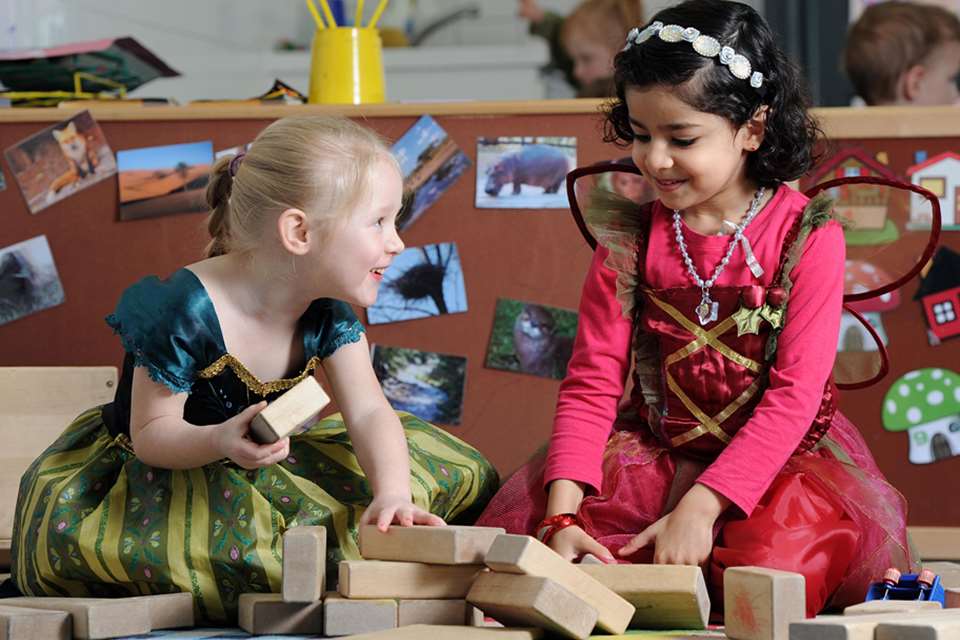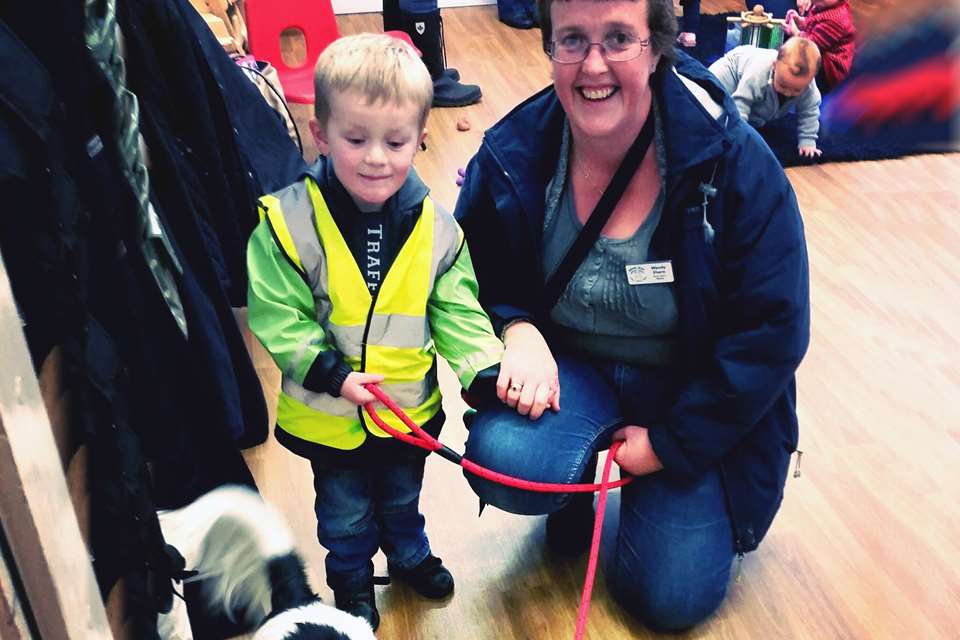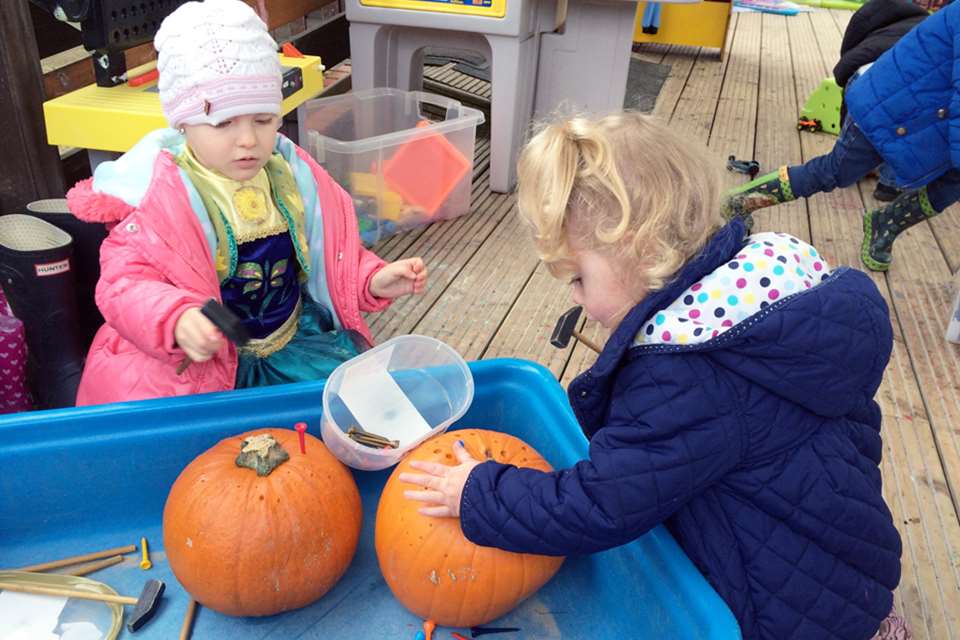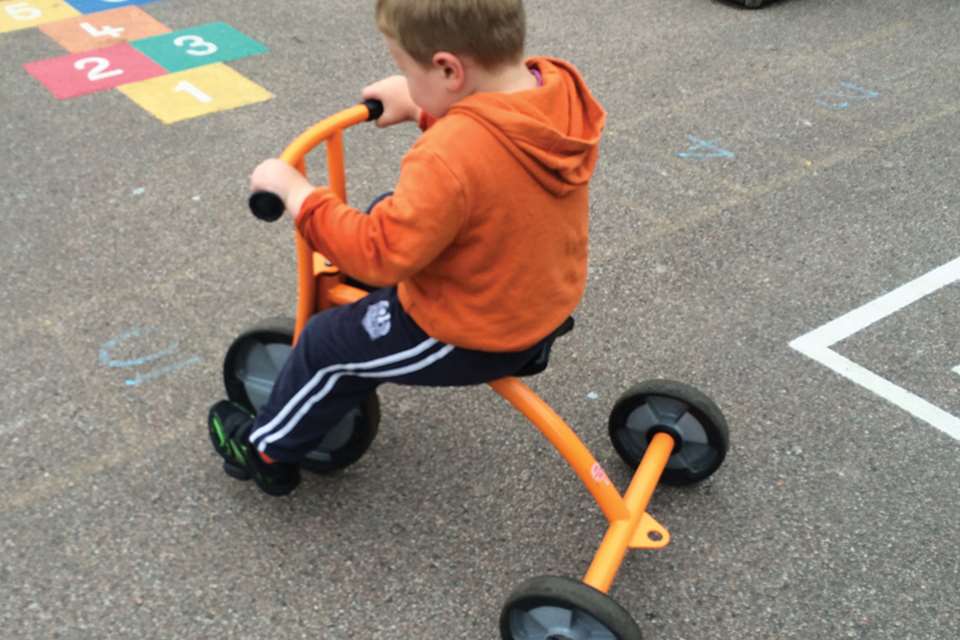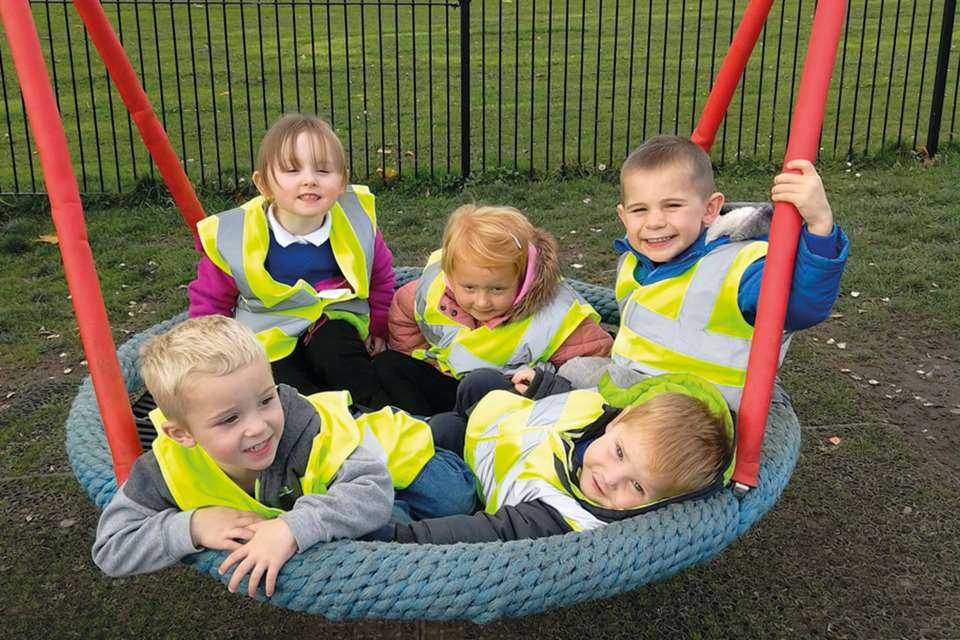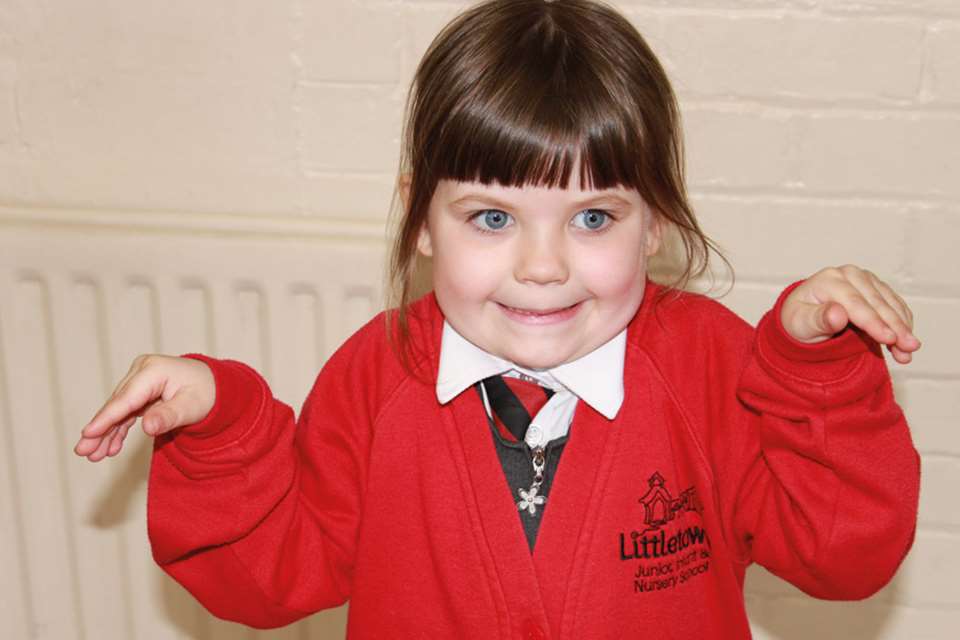A Unique Child: Inclusion - A capital idea
Lisa Clarke and Fran Paffard
Monday, September 19, 2016
Funding from the Early Years Pupil Premium led to a Natural Explorers project in Hackney that benefited the whole nursery and children’s centre, write Lisa Clarke and Fran Paffard

Many children arrive at Comet Nursery School and Children’s Centre in East London with a need for speech and language development, so the introduction of the Early Years Pupil Premium (EYPP) made us think hard about what we wanted to develop and how we could achieve it.
Comet lies in the heart of Hackney, an area of deprivation with poor housing but a richly diverse community, ethnically and linguistically. Of the 14 languages spoken by our families, Turkish is the main home language after English, while many families originate from African countries. More than a third of our children qualify for the EYPP.
What has emerged from our deliberations has been a slow evolution of different ideas. We wanted to draw on the skills, expertise and enthusiasm of our varied practitioners. We also knew we wanted to address children’s communication beyond a remedial approach, ensuring children were seen as individuals.
We also didn’t want to address the EYPP children in isolation, but to create a sustainable input that would ripple through the whole centre and reach all the children and families in our care.
Our solution was to create our ‘Natural Explorers’ provision, bringing together ideas from the Forest School approach, a gardening initiative and a recent scientific enquiry project. Our way into the initiative was to organise trips for the children, something that extended their interests and, we know, will have a long-lasting impact on their learning.
Much of what we now do is a universal offer that enhances the learning for all children but focuses on meeting the needs and interests of our EYPP-funded natural explorers. We believe this is an innovative approach to developing language and communication, broadening vocabulary through sustained shared thinking and embedding creativity and critical thinking into everything we do.
We spent our EYPP funding on people. We paid for cover to allow experienced staff to work closely with the focus children and facilitate trips. It has also paid for a gardener, who comes in fortnightly and works with groups of children to plant and develop a garden area in which we grow vegetables that we can use in our tea club. We have also spent money on funding trips to places that children might not otherwise access.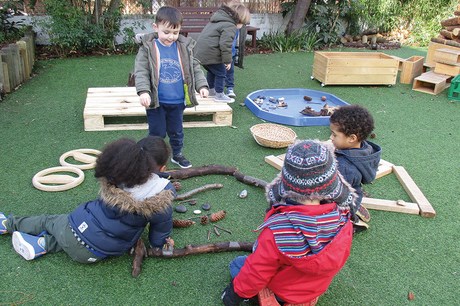
CULTURAL CAPITAL
Our decisions on how to make best use of the funding have been heavily influenced by the work of Pierre Bourdieu and his concept of enriching children’s ‘Cultural Capital’ as a means of tackling inequality. If you have never been to a restaurant or experienced the wider world, such as a trip to the aquarium, then how do you break out from the world in which you live? Even sitting on the top deck of the bus can be a transforming experience for a child who has never done it.
We have realised that ‘Cultural Capital’ applies to our parents too, and our small group trips often involve parents who might otherwise never access these different experiences.
‘I WANT AN OCTOPUS’
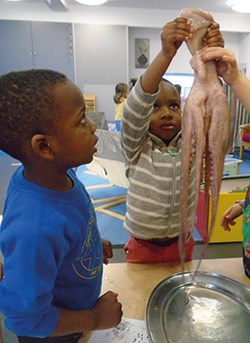 One example of our approach would be a whole cycle of activity stemming from one child’s interests. Amanda was interested in fish, loved looking at pictures and books, and was particularly fascinated by the octopus. She wanted an octopus in the classroom, which wasn’t a possibility, so instead we visited a pet shop to buy some fish that we could keep in the classroom.
One example of our approach would be a whole cycle of activity stemming from one child’s interests. Amanda was interested in fish, loved looking at pictures and books, and was particularly fascinated by the octopus. She wanted an octopus in the classroom, which wasn’t a possibility, so instead we visited a pet shop to buy some fish that we could keep in the classroom.
We also took Amanda on a trip to a fish shop to buy an octopus, which could be taken to nursery for examination. The explorations that followed caused an explosion of language and thinking, including amazing words like ‘squidgy’ ‘slimy’ and ‘wobbly’, all broadening the children’s vocabulary.
Amanda wanted to know where the ‘bones’ were and looked for the eyes, nose and mouth. A genuine scientific enquiry took place during this strongly sensory experience where children had time and space to explore in a prolonged episode of ‘sustained shared thinking’. To our delight, this fascination continued and spread among the children, with many of them becoming intrigued by the marine world.
The next phase was a trip to the London Aquarium, involving parents and children in planning the trip, preparing their own packed lunches and travelling by bus across London. There were opportunities at the aquarium for intense first-hand experiences, such as touching a real starfish, looking at rays eye-to-eye, counting a shark’s teeth, and watching, awestruck, the gliding, pulsating movement of jellyfish.
The impact of this experience continued to inform the children’s thinking for many weeks, showing up in their play, language, artwork and in an increased interest in non-fiction books and internet research.
‘A TABLE FOR 12, PLEASE’
At this point, Chinese New Year was approaching, and with a well-established Vietnamese community and many restaurants on our doorstep (plus the knowledge that many of our children had never been to a restaurant), we planned our next outing. We took the bus to a Vietnamese restaurant and caused a stir by asking for a table for 12.
The children loved looking at the pictorial menus and ordering from them. We ordered spring rolls and a vegetable stir-fry, which the children all enjoyed trying to eat with chopsticks. The children were all extraordinarily willing to try the unfamiliar foods, and found some innovative ways of using chopsticks! Once again, the experience generated some fabulous language.
Other customers commented in amazement that our three- and four-year-olds sat perfectly throughout the meal, and we were delighted by how utterly immersed our children were in the whole experience.
RAPID AND SUSTAINED
To monitor our children’s progress, we have used the Every Child a Talker monitoring tool alongside our existing EYFS records, and already progress has been rapid and sustained. Within the short time that we have been implementing ‘Natural Explorers’ and monitoring the data, we have seen the gap between our EYPP and non-EYPP children narrow by 2 per cent.
It is too early to show a sustained impact, but anecdotally we see every day the enrichment and progress that children are making. Small-group work and the outdoor environment have also impacted on our less confident children, who have found a voice and flourish as they make hot chocolate in the storm kettle and build dens and fires.
We have tried to extend these benefits through the children’s centre and our provision for two-year-olds by involving parents and our whole community, in particular by starting an enthusiastic gardening project. Our gardener is now providing gardening sessions with the children’s centre families, focusing on healthy living.
There have been challenges to the project: first, the responsibility of using this funding to really benefit the most vulnerable children, while keeping it an inclusive initiative that involved our whole community; then came the challenge of demonstrating its impact when we suspect that some of the most important gains for children are hard to measure.
Now we need to ensure that this exciting change to children’s lives and outcomes becomes securely embedded in our practice. It has been a joy to see our natural explorers develop their life skills through meaningful experiences, and we know now our funding is working so that other children can follow Emru’s path into being learners for life.
EMRU’S STORY
‘Emru came to us aged three as a Turkish speaker at the very early stages of learning English and qualifying for the Early Years Pupil Premium,’ says Comet head teacher Lisa Clarke.
‘She found it very difficult to separate from her mum but gradually settled and began to show us her true self. Emru has a thirst for knowledge, and an infectious curiosity that takes other children with her.
‘Being able to include Emru in trips out, in the Forest School, and in the transient art with natural materials has been the trigger for her for a wonderful blossoming of her own language and learning. Her eager participation in outdoor learning and the Forest School in particular has built her resilience.
‘Having the time to become immersed, to revisit skills and to pass her learning on to others has enabled her to progress rapidly in all areas of learning. She has moved from a child who arrived at a low baseline and was reticent to participate into one of our most confident, thoughtful and curious children. She has those dispositions to be a learner for life.’
Lisa Clarke is head teacher and Fran Paffard is chair of governors at Comet Nursery School and Children’s Centre, Hackney, East London
IN PROFILE
Comet Nursery School is a maintained setting rated Outstanding in its last three Ofsted inspections.
It has 90 children on its roll and, since January 2015, has taken 32 two-year-olds eligible for funded places.
In September 2015, it became part of a Teaching School Alliance working with other primary and nursery schools across East London (the East London Early Years and Schools Partnership).
The Children’s Centre opened in 2009, when the nursery was rebuilt, and has a reach of 482 families.
It works within a cluster of children’s centres surrounded by ten Super Output Areas, all of which are in the ten per cent most deprived localities in the UK.
INFORMATION
www.cometnurseryandcc.co.uk/website/about_the_childrens_centre/214432
For more information on the EYPP and innovative ways of spending the funding, see our eight-part series by Charlotte Goddard, ‘Cash flow’ by Di Chilvers and ‘Dramatic change’ by Helen Chilton.


